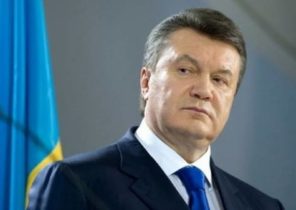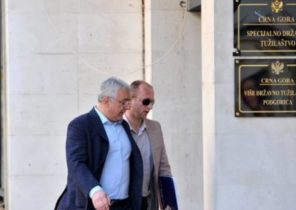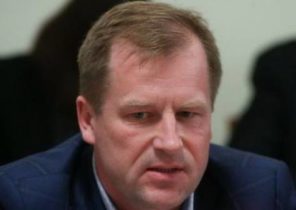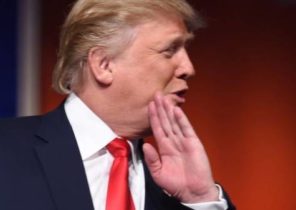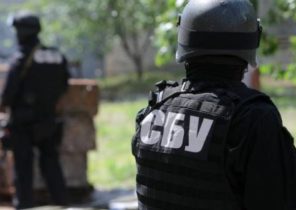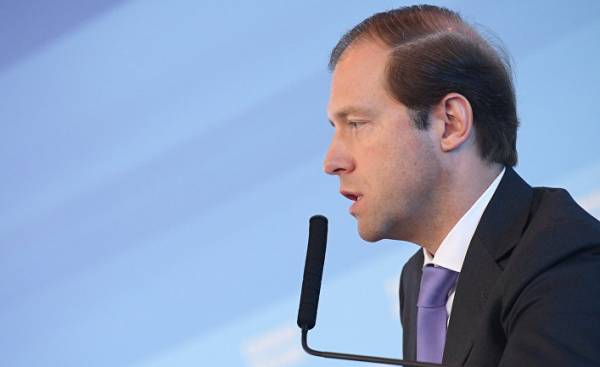
Political relations — poor, economic relations between the West and Russia are largely frozen. However, the Russian deal with that is surprisingly pragmatic. The exchange of goods must continue — no matter how deteriorated the relationship, says Minister of industry and trade of Russia Denis Manturov. While the German Chancellor on Tuesday will go to Sochi to meet with Vladimir Putin, Manturov visited Germany. He is campaigning for the economy of the country. She, according to him, in many areas endured the effects of Western sanctions, found new partners and have developed solutions. This year, according to the Minister, the economy will grow for the first time. So he sees no reason for recent protests in Russia. Leads unusual compared with the demonstrations in Germany.
Welt am Sonntag: Mr. Manturov, the Russian economy is going not so well. Over the years, reduced productivity, investment, consumer spending or GDP. If you reached already the lowest point — or the decline will continue?
Denis Manturov: In the past years, our economy has of course evolved negatively. But this has changed. Last year and the first quarter of 2017, we reiterated in almost all industries, especially in manufacturing sector growth. The total economy of Russia, according to our expectations, should grow this year by about two percent.
— Does this mean that Western economic sanctions were unsuccessful?
No, of course we feel the effects of the embargo. For us it is undoubtedly difficult to obtain loans abroad. And access to Western technology, we have virtually no. However, the Russian economy adjusts to these restrictions.
— The fact that it is trying to get money and technology in other places?
Loans that require businesses, we get only from Russian banks. In rubles. It works. And technology from Europe, we have successfully replaced those from countries that did not boycott us.
And they can replace supplies from the West?
— In addition, we increase our own literacy and caught up to where it was needed.
— Can You give specific example?
— Take, for example, agricultural machinery. In 2012 the share of agricultural machinery of the Russian production was on the market in the country 19%. Last year it was 54%.
But it’s not necessarily high technology.
— Well, look at pharmaceuticals. This market is growing, we now have every year at 15%. In 2009, the share of domestic producers on the market was 17% now it is 30%. Or the automotive industry: more than 80% of all cars sold last year in our country, was completely produced in the Russian Federation, or at least mounted.
— And yet, because of the lack of Western goods could appear in the gaps, which have implications for the supply of the population. For example, in Kaliningrad people complain that some food meanwhile became inaccessible.
I don’t know who You talked to. But look at statistics or look at any grocery store. As a result, we will see that 90% in some areas completely, is a replacement of Western food.
And it’s so easy? Russia for a long time in many fields was dependent on food imports.
— So You said it yourself agriculture is not high technology. Currently, the country has built a farm on cultivation of poultry and livestock. By the way, we already export food products, for example, the middle East or in China.
— That is Russia now became an independent samenbrengen.
— I didn’t say that. Gaps in supply are. We still have to import inter alia of the dairy products, beef, vegetables and fruits. Here we have yet to increase its own production. We also want to reduce their dependence in the field of seed, and in this respect we have success. In the past three years, the import of seed material decreased by 9%. For potatoes this figure was 30%, vegetables — 44 percent. In animal husbandry we have managed to reduce the import of dairy cows by 40%. The deficit there is still at the juvenile fish or exotic fruits, such as pineapple or bananas. We are still buying abroad as You are in Germany. (laughs).
When You so listen, one might think that the Western embargo acts as the unwitting help of Russia to development.
— You can look at it.
— And yet You are here in order to test whether it is possible again to normalize economic relations.
— During this visit the idea is to exchange views and establish contacts. I just met with the Federal Minister of Economics of Germany cupric Brigitte (Brigitte Zypries), Prime Minister of the Federal state of lower Saxony Stephan Weil (Stephan Weil), Prime Minister of Mecklenburg-Vorpommern Erwin Sellering (Erwin Sellering). My task is to pave the way for Russian deliveries on the German and European market and to improve the business climate between the two countries.
— It would need a political thaw. Do You feel that the time has come?
— Thaw or ice age: the economy must grow, it must be based pragmatically. And it is in the relations between Germany and Russia. Our economic relations are not so bad as You represent it. One example: the German company in Russia in past years has constructed 55 new plants.
— What can not close that relationship was badly damaged.
— I look at it differently. Embargo more or less, in reality, these contacts between the economies of the two countries never stopped. There are many projects, contacts and cooperation at the regional level. Some of the land Germany has successfully attempted to find a direct contact with the Russian regions, to build economic relations.
— Don’t You get a lot of complaints from foreign investors?
Why?
German firms regularly report massive difficulties in conducting business in Russia. About legal insecurity, the incredible bureaucracy, impossible standards, and corruption.
I don’t see this problem. If we’re going with representatives of foreign firms, we do not just sit and drink tea. We’re talking about possible problems and try to solve them. In fact. The situation is not as dramatic as You imagine it. I yesterday had a meeting with representatives of German companies active in Russia. And I’ll tell You: there was not a single complaint about any obstacles.
— Actual footage from Russia show that Russians have more and more complaints. Increasingly held demonstrations, which reportedly castigated the poor economic situation. What are You doing to meet people?
— I think You are quite aware as to the situation in Russia. And I don’t know who I should go forward. President Vladimir Putin and the government are doing everything to unleash the economy. On the other hand, I’m here in Germany, I turned on the TV and saw footage of the protests in Munich. And then I ask myself how You are going to meet these people.
— In Russia under Putin mass protests are nothing new. We have the same public expression of discontent and demonstrations are part of a culture of discussion and debate. We do this in a sense both accepted.
— (laughs) I’m not so sure that this is the best part of Your culture.



